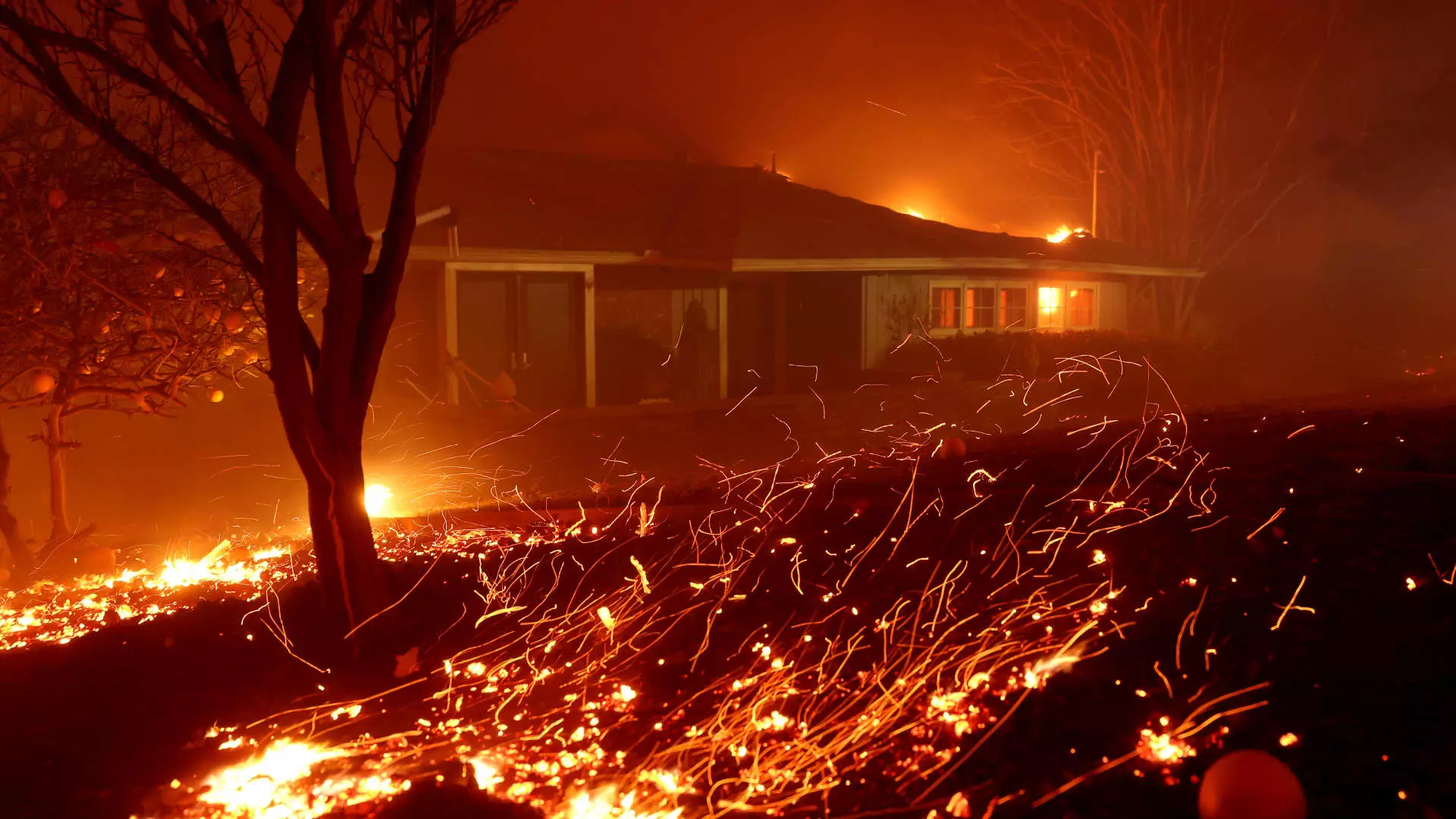As the Los Angeles wildfires rage on, the immediate and long-term ramifications on the real estate market are turning out to be profound yet difficult to quantify. With California grappling with its climate-related disasters, it becomes crucial to explore how such events affect not only local real estate values but the entire economic landscape across the United States. Climate change is transforming from a distant theoretical issue into an imminent reality that reshapes real estate markets and regional economies, with implications that extend far beyond mere insurance costs.
Insurance Cost Surge: A Predictable Outcome
One of the first tangible impacts of the wildfire crisis is the anticipated hike in insurance premiums. Experts in climate risk, such as Jeremy Porter of First Street, project that national insurance can increase by an average of 25% over the next three decades due to a combination of underpricing current risks and the escalating dangers associated with climate change. While this adjustment marks a significant economic shift, it also indicates that previous valuations of risk were sorely underestimated. As homeownership costs ascend, the value of properties is likely to decline, setting the stage for a potentially unprecedented correction in real estate markets.
When evaluating the long-term value loss in the housing sector, research suggests that nearly 84% of U.S. homes could face some depreciation by 2055, translating to an alarming total loss of around $1.47 trillion. The impact, although averaged to only a 3% loss nationally, varies drastically by region; particular counties in Texas, Florida, and Louisiana may see property values halved due to the increasing unpredictability associated with climate-related events. Such localized yet drastic declines raise important questions about the overall sustainability of certain housing markets, forcing investors and homeowners alike to reconsider the notion of real estate as a secure financial asset.
Foreclosures: A Disturbing Correlation
The frightening prospect of rising foreclosures compounds the issue, creating a vicious cycle that destabilizes housing markets. Historical precedents, such as the aftermath of Hurricane Sandy and floods in Iowa, vividly illustrate how foreclosures surged as climate disasters unfolded. Recommendations for mortgage firms, such as Fannie Mae, to start factoring in climate risks in their underwriting processes suggest that the financial sector is gradually awakening to these realities. However, the pace of adaptation appears slow; without proactive measures, the mortgage market risks repeating the catastrophic mistakes witnessed during previous economic downturns.
The Market’s Balancing Act
According to experts like Ben Keys from the Wharton School, the real estate market will have to find a new equilibrium in response to the growing climate risk. This balancing act is a multifaceted issue. Rising insurance premiums are not the only contributing factor to the potential devaluation of properties; local governments could also increase taxes to fund resilience projects, thereby adding further financial stress to homeowners. The evolving structure of maintenance and energy costs adds another layer, compounding the issues surrounding affordability and desirability of homes in high-risk areas.
The expert sentiment echoed by Dave Burt of DeltaTerra Capital suggests that the current trajectory of the market mirrors past patterns seen during the 2007-2012 recession, where escalating housing costs led to a dramatic market correction. The indicators are all there, yet the prevailing sentiment still lacks urgency. The lessons from previous economic crises must serve as a cautionary tale for investors and policy-makers alike as climate impacts continue to escalate at a rate faster than anticipated.
As the implications of climate change permeate the real estate sector, it is vital to shift our perspective from viewing climate issues as theoretical to recognizing them as immediate economic threats. The unprecedented upheaval in the housing market triggered by the wildfires serves as a wake-up call. Policymakers and stakeholders across industries must prioritize climate risk assessments and adaptability in their investment strategies. Without meaningful intervention, the ramifications will not only reverberate throughout California but will ignite a nationwide economic crisis that is desperate for solutions. In the face of an uncertain future, proactive measures are necessary to fortify real estate markets against the climate shifts that are no longer a distant concern—they are our reality.

